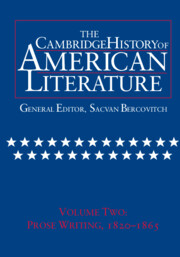3 - The Literature of Slavery and African American Culture
from THE LITERATURE OF EXPANSION AND RACE
Published online by Cambridge University Press: 28 March 2008
Summary
On the first anniversary of the founding of his famous anti-slavery magazine, the Liberator, William Lloyd Garrison invoked the “Spirit of Liberty” that was “thundering at castle-gates and prison-doors” throughout the world. Rather than celebrate the fires of democratic revolution that had spread from America in 1776 to revolutions in a number of European countries by the early 1830s, however, Garrison dwelt on the significant failure of the American Revolution – the problem of slavery. When liberty “gets the mastery over its enemy,” Garrison inquired rhetorically, “will not its retaliation be terrible?” Only “timely repentance” could save the American nation's “blind, unrelenting, haughty, cruel, heaven-daring oppressors” from the fate of foreign despots and aristocracies. Because repentance on a national scale did not seem likely in the 1830s, Garrison put forth a paradoxical proposition: in order to avoid having to join in defending the South against slave insurrection, the North ought to dissolve the Union. Were this threat to “break the chain which binds [the South] to the Union” carried out, however, Garrison predicted that “the scenes of St. Domingo would be witnessed throughout her borders.”
Garrison was no doubt thinking of Nat Turner's slave rebellion in Southampton, Virginia, the previous year. The most successful slave uprising in American history, Turner's rebellion caused alarm in the South about a repetition of the massive democratic rebellion of slaves in San Domingo (Haiti) at the end of the eighteenth century and quickly became a touchstone of both antislavery and proslavery sentiment. But Garrison may also have had in mind the black abolitionist David Walker's fiery pamphlet, Appeal … to the Coloured Citizens of the World, which had appeared in 1828 and which some had held responsible for Turner's rebellion.
- Type
- Chapter
- Information
- The Cambridge History of American Literature , pp. 239 - 328Publisher: Cambridge University PressPrint publication year: 1995

